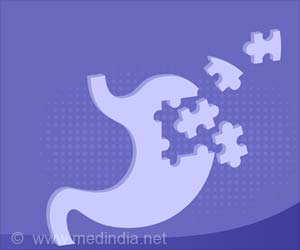Administration of an anticoagulant medication bivalirudin proves to improve the survival rate in heart attack patients when compared to heparin and a glycoprotein IIb/ IIIa inhibitor.

Use of a drug-eluting stent (paclitaxel) was also shown to be more effective than a bare-metal stent, with equivalent safety.
After 3-years, treatment with bivalirudin alone compared to heparin plus a GP IIb/IIIa inhibitor resulted in significantly reduced rates of all-cause mortality (5.9 percent vs. 7.7 percent), cardiac mortality (2.9 percent vs. 5.1 percent), reinfarction (6.2 percent vs. 8.2 percent) and major bleeding not related to bypass graft surgery (6.9 percent vs. 10.5 percent).
There were no significant differences in the incidence of ischemia-driven target vessel revascularization, stent thrombosis, stroke, or composite adverse events.
In addition, at 3-years, the implantation of a paclitaxel-eluting stent compared to a bare-metal stent resulted in significantly lower rates of ischemia-driven target lesion revascularization (9.4 percent vs. 15.1 percent) with no significant differences in the rates of death, reinfarction, stroke, or stent thrombosis.
"The results at 3-years demonstrate that use of bivalirudin alone, as opposed to a combination of heparin and a GP IIb/IIIa inhibitor, can save lives," Gregg W. Stone, MD, Professor of Medicine at Columbia University College of Physicians and Surgeons, Director of Cardiovascular Research and Education at the Center for Interventional Vascular Therapy at NewYork-Presbyterian Hospital/Columbia University Medical Center and Co-Director of the Medical Research and Education Division at the Cardiovascular Research Foundation (CRF), said.
Advertisement
"Additionally, results of the trial showed that patients who received a paclitaxel-eluting stent had a 40 percent reduction in risk of ischemia-driven target lesion revascularization after 3 years compared with those patients given a bare-metal stent," Stone, who is the principal investigator of the HORIZONS-AMI trial said.
Final 3-year results of the trial were published in the June 13, 2011, issue of The Lancet.
Source-ANI















